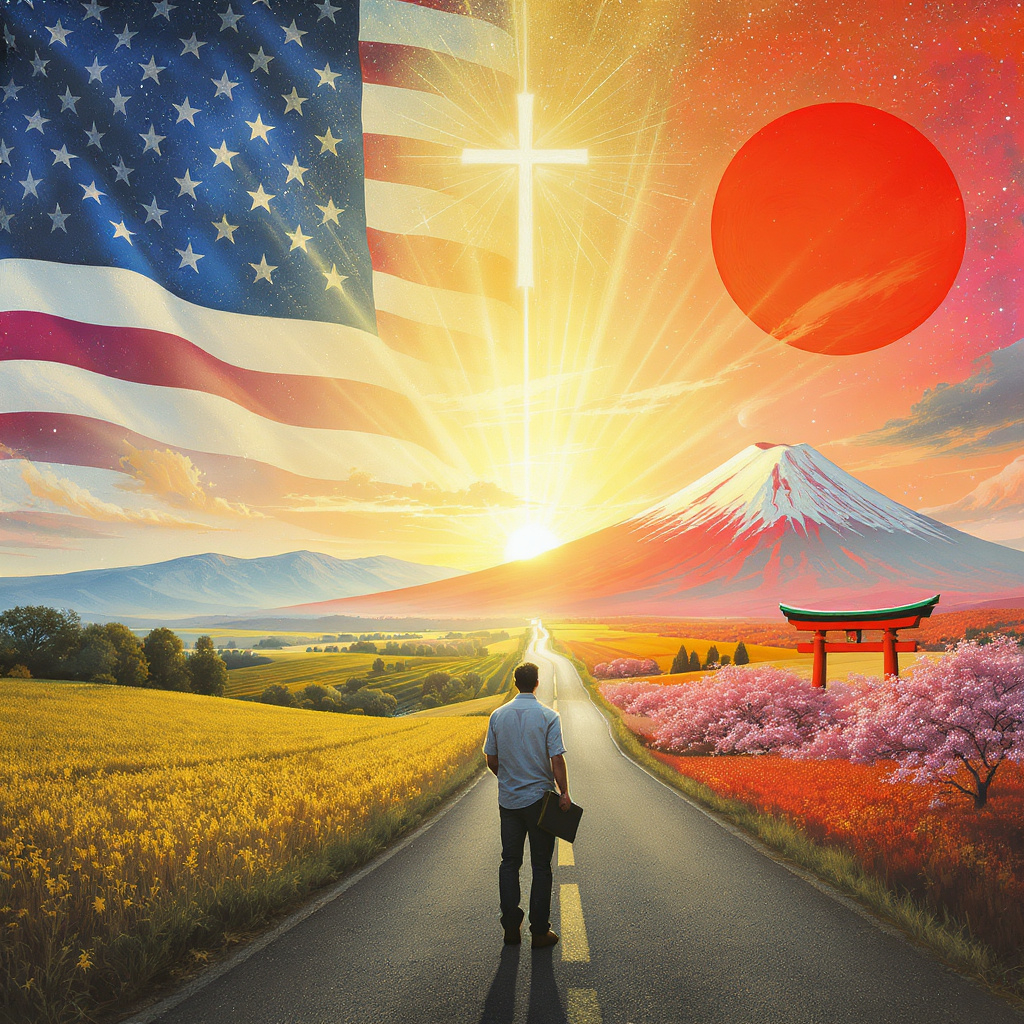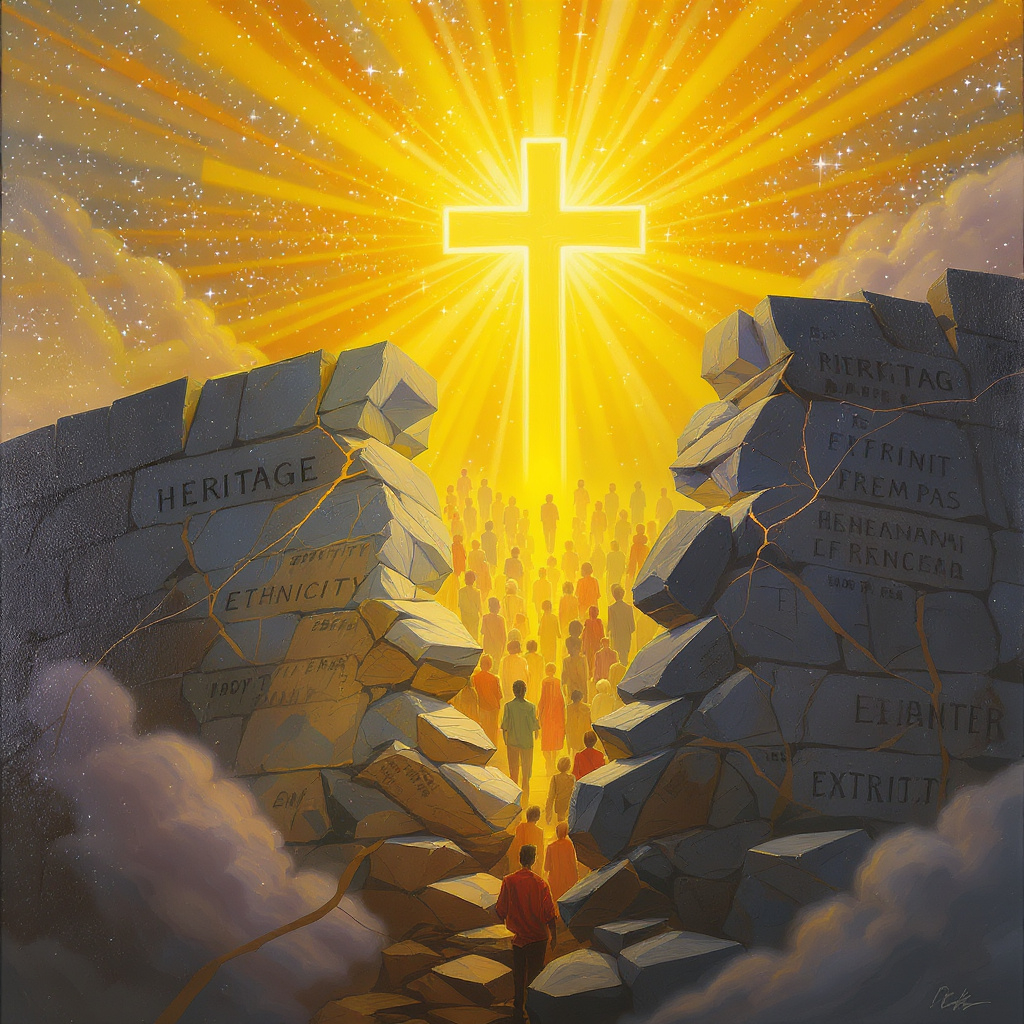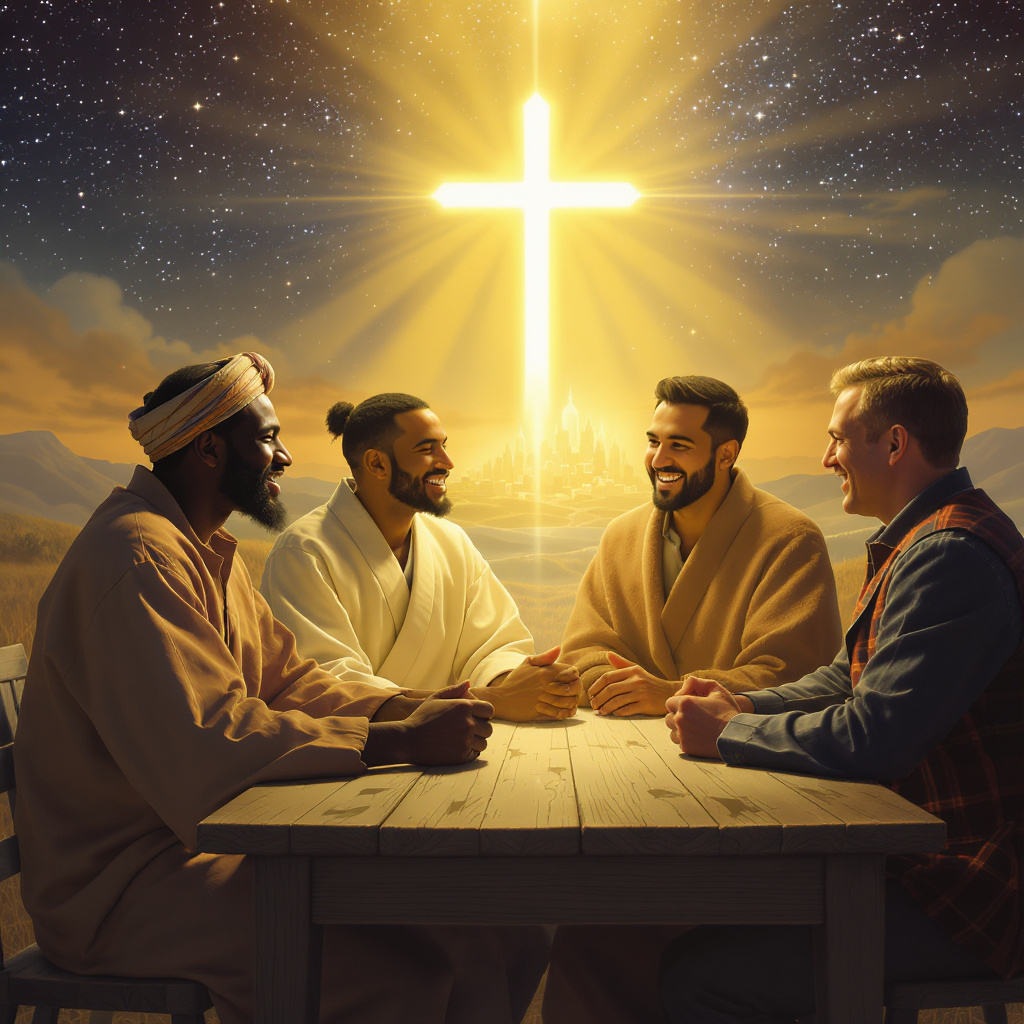Citizens of Heaven: Rethinking Patriotism in a Global Gospel, Part 2
Posted on 09/15/2025 at The Curmudgeon’s Chronicle

The Echo Chamber of Whiteness
I’ve always believed loving your country can be a beautiful thing. It’s why I choke up on Memorial Day, honoring those who gave everything, and feel a swell of pride when the American flag ripples in the wind. But lately, I’ve been troubled by how some Christian voices – men like Steven Wolfe, Joel Webbon, Andrew Isker, Brian Sauvé, Eric Cohn, and even Matt Walsh, a Catholic with a big Daily Wire platform – talk about that love. Their calls to “protect our heritage” or “preserve our culture” sound noble at first. Yet, the more I listen, the more I hear a subtle push that elevates one group – often white, Anglo-Saxon Protestants – above the gospel’s call to all nations. They might say it’s not about race but “ethnicity” or “culture,” yet the result often lifts up one identity over others in ways Scripture doesn’t support. Is this what God calls us to? Or are we drifting toward an idol that puts one group above the global bride of Christ?
The argument goes something like this: a nation thrives when it’s unified by a shared “ethnicity” or “culture,” not necessarily race. Wolfe, in The Case for Christian Nationalism, leans hard into this, claiming that a common cultural heritage – rooted in things like language, customs, and history – creates stability. On paper, it sounds reasonable. Who doesn’t want a nation that feels cohesive? But here’s where it unravels: when you dig into what “culture” or “ethnicity” means in practice, it often looks like a specific slice of America – white, Protestant, Anglo-Saxon. That’s not a neutral category; it’s a preference that sidelines everyone else. Scripture doesn’t back this up. Acts 17:26 says God “hath made of one blood all nations of men for to dwell on all the face of the earth.” If God created all humanity from one blood, why are we acting like one group’s heritage is the gold standard?
This ethnicity dodge is clever but flawed. Wolfe and others might claim they’re not talking about skin color, but their vision of a “unified” America often celebrates a past that elevates white Protestant traditions while marginalizing others. The attempt to separate “ethnicity” from race falls apart because it still prioritizes a specific cultural mold – one that conveniently aligns with a white, Anglo-Saxon identity. The problem isn’t just historical inaccuracy; it’s theological. Wolfe’s framework assumes nations should revolve around a dominant cultural group, but Scripture points to a kingdom where all nations worship together (Rev. 7:9). Galatians 3:28 is crystal clear: “There is neither Jew nor Greek… for ye are all one in Christ Jesus.” If the salvific cross-work of Christ unites across ethnic lines, why are we drawing them in His name? This approach risks turning “ethnicity” into a gatekeeper, where only certain traditions define faithfulness, leaving everyone else on the outside. America’s history tells a different story. From Native Americans to African slaves to waves of immigrants from Ireland, Italy, Mexico, and Asia, this nation has always been a mix. To insist on a “unified culture” rooted in one heritage isn’t just selective history – it’s a theological misstep that clashes with God’s call to love all nations.

Some push this further, claiming the original European settlers weren’t immigrants but “colonizers” who built something new, unlike modern immigrants who, they say, exploit what others created. They call these settlers and their descendants “heritage Americans,” arguing the U.S. belongs to this group and their culture must be protected. This narrative paints a noble picture of pioneers forging a nation, but it’s a half-truth that distorts both history and theology. Those Europeans didn’t arrive on empty land – early settlers often clashed with Native Americans, and after 1785, the U.S. government drove much of the violent displacement. African slave labor fueled the Southern plantation economy, while pioneer grit built the North and pushed the frontier west. Modern immigrants, like those settlers, come seeking opportunity, adding to America’s story through their labor and lives. History shows a nation shaped by diverse hands, from early Irish and Italian immigrants to later waves from Mexico, Asia, and beyond. More importantly, Scripture doesn’t play favorites with “heritage.” Acts 17:26 reminds us all nations are of one blood, and Leviticus 19:34 commands, “The stranger that dwelleth with you shall be unto you as one born among you.” Elevating “heritage Americans” over others isn’t just elitist – it’s a rejection of God’s call to love the stranger as family.
I’m not saying these men are all out to exclude anyone intentionally. I’ve met folks in these circles who love their neighbors and their faith. But good intentions don’t fix bad theology. When Webbon or Isker talk about “heritage,” or Walsh decries cultural shifts that “dilute” tradition, they’re tapping into a real fear – losing what’s familiar in a changing world. I feel that, too. I grew up in rural America, where church suppers and small-town values felt like home. But Leviticus 19:34 stops me cold: “The stranger that dwelleth with you shall be unto you as one born among you, and thou shalt love him as thyself.” God doesn’t call us to preserve a nostalgic ideal; He calls us to love the stranger as family, no matter their background.
The warning sign is how close this rhetoric can get to extremes. Take Corey Mahler and Ryan Dumperth’s Stone Choir. Their X posts argue ethnic homogeneity is God’s design, cherry-picking verses while ignoring Revelation 7:9, where “a great multitude… of all nations, and kindreds, and people, and tongues” worships before the throne. That’s God’s endgame – a diverse body united in Christ, not a nation clinging to one ethnic mold. When “culture” becomes a stand-in for “whiteness,” we’re not just missing the mark; we’re sliding toward an idol. Deuteronomy 10:19 doubles down: “Love ye therefore the stranger: for ye were strangers in the land of Egypt.” God’s heart is for the outsider, not the insider’s club.

This hits me personally as I prepare to move my family to Japan. The other night, I was rocking my 9-month-old daughter to sleep, her tiny hand reflexively petting my beard. It struck me that she likely won’t remember America as home. Her earliest memories will be of Japan – its language, its streets, its people. That thought stings, because I love this country and the small-town roots that shaped me. But it also clarifies my calling. We’re not going to Japan to make it “American” or to cling to some cultural ideal. We’re going to share the gospel, to love people who don’t look or live like us, just as Hebrews 13:2 urges: “Be not forgetful to entertain strangers: for thereby some have entertained angels unawares.” That’s what I want for the church here, too – a patriotism that loves America but doesn’t idolize it, one that embraces the stranger without fear.
The gospel isn’t a culture war – it’s a call to unity in Christ, across all lines. When we let “heritage” or “ethnicity” define our faith, we risk building a fortress instead of a kingdom. Revelation 7:9 shows us the goal: “a great multitude… of all nations, and kindreds, and people, and tongues” worshipping before the throne. That’s what we’re aiming for – not a nation that lifts up one group, but a church that reflects God’s heart for all. Jesus Himself drives it home in Matthew 25:35: “I was a stranger, and ye took me in.” As I look at my daughter, I’m reminded that my citizenship – and, I pray, hers – is in heaven first.
Can we love our country without making it an idol? Can we cherish our roots without shutting out others? These are the questions we must answer to keep the gospel’s call loud and clear.